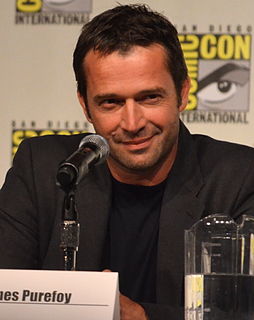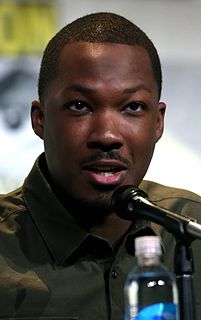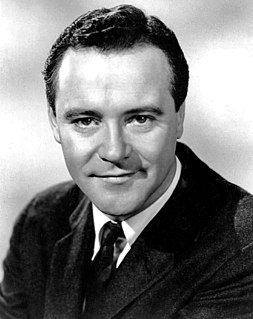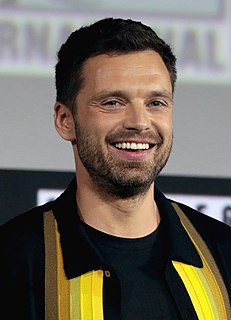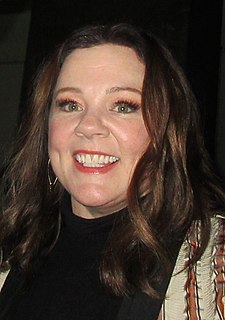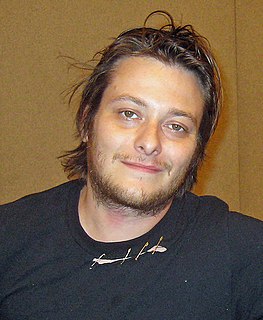A Quote by Sigourney Weaver
When I was in college, I did sort of want to be a journalist. Being an actor, you kind of have the same interest. You go into a story, and you tell it from your point of view for people who aren't there. That's what an actor does with a character. But the real life is more more interesting.
Related Quotes
As an actor, you don't want to know the beginning and end to your character's arc. It makes it more fun. You're not playing the end. You're playing it realistically. You don't know where this character is going to go and what's going to happen to him, which just makes it more interesting for the viewers to watch. They're going on the journey with you, as the actor and the character.
Part of an actor's job is to actually adopt the world-view of the character she is playing and to tell the story from that vantage point. If an actor represses large aspects of their personality, they will have a severely limited range and castability. Great actors cultivate effortless access to their subpersonalities. Many acting teachers call this 'freeing your instrument.'
If the point of life is the same as the point of a story, the point of life is character transformation. If I got any comfort as I set out on my first story, it was that in nearly every story, the protagonist is transformed. He's a jerk at the beginning and nice at the end, or a coward at the beginning and brave at the end. If the character doesn't change, the story hasn't happened yet. And if story is derived from real life, if story is just condensed version of life then life itself may be designed to change us so that we evolve from one kind of person to another.
When an acting teacher tells a student 'that wasn't honest work' or 'that didn't seem real,' what does this mean? In life, we are rarely 'truthful' or 'honest' or 'real'. And characters in plays are almost never 'truthful' or 'honest' or 'real'. What exactly do teachers even mean by these words? A more useful question is: What is the story the actor was telling in their work? An actor is always telling a story. We all are telling stories, all the time. Story: that is what it is all about.
I think there's so many points of view that you want to make sure your stories are being told from men and women... you get all of the different backgrounds. You don't want every story being told from the same point of view. So just for better storytelling, I'm like, 'Yes, please, bring some more ladies on.'
As I get older, I'm more willing to take on more, I guess. I feel more comfortable kind of being different characters and kind of stretching it a little more. Like with The Visitation. At least for me, being an actor, I have to draw from human experiences, so it was kind of a stretch playing that role. Kind of supernatural... kind of like what I did in The Crow actually.
People call me a theater actor, but I'm just an actor. But I tell my friends all the time - especially a lot that do theater and haven't done a lot of TV/film - that you have so much more control over your work onstage. When you go onstage, you can really see the difference between people who can really do it, and people who are just kind of pretending to do it. There is no editor, there's nothing that's going to stop the actor from showing what they can do unless it's not a well-written role.
As an actor, you want to be able to move your character forward into new ground, but also it's really interesting to go backwards and unpeel those layers and the interesting elements of what your character is and what informs the decisions that you make so that you can have as much meat to work with.
As an actor, you don't want to know the beginning and end to your character's arc. It makes it more fun. You're not playing the end. You're playing it realistically. You don't know where this character is going to go and what's going to happen to him, which just makes it more interesting for the viewers to watch.

